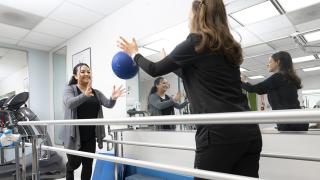
Department of Rehabilitation
These services are available to both inpatients and outpatients of all ages.
Physical therapists are movement experts who optimize function, independence and quality of life through prescribed exercises, hands-on care and patient education. We combine the latest evidence in oncologic physical therapy with our expertise, to help you achieve your maximum potential following a variety of cancer treatments, such as chemotherapy, radiation, hormone therapy, immunotherapy and surgery.
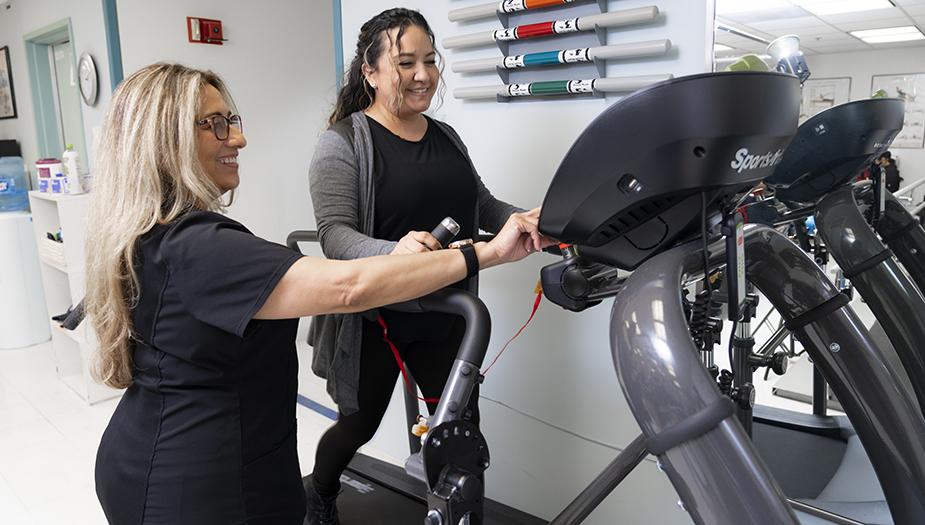
City of Hope's occupational therapists have specialized holistic knowledge in how cancer can affect an individual’s cognitive, emotional, social and physical well-being. We analyze and problem solve how to minimize disruptions to the daily flow of life throughout the continuum of cancer care, including new diagnosis, active treatment, survivorship, hospice and palliative care.
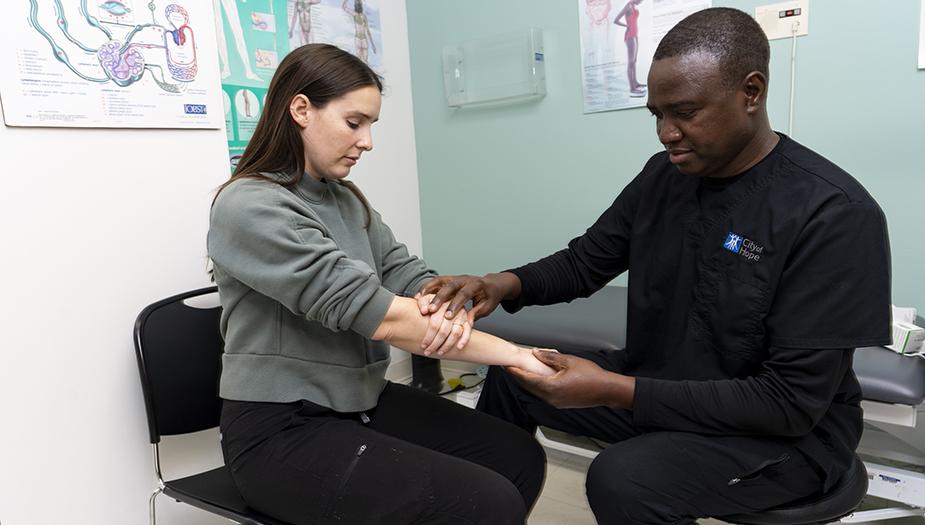
Speech-language pathologists at City of Hope provide specialized oncology services for patients with difficulty communicating and/or swallowing. We combine our clinical expertise and evidence-based practice with your individual goals to optimize your function, safety and quality of life.
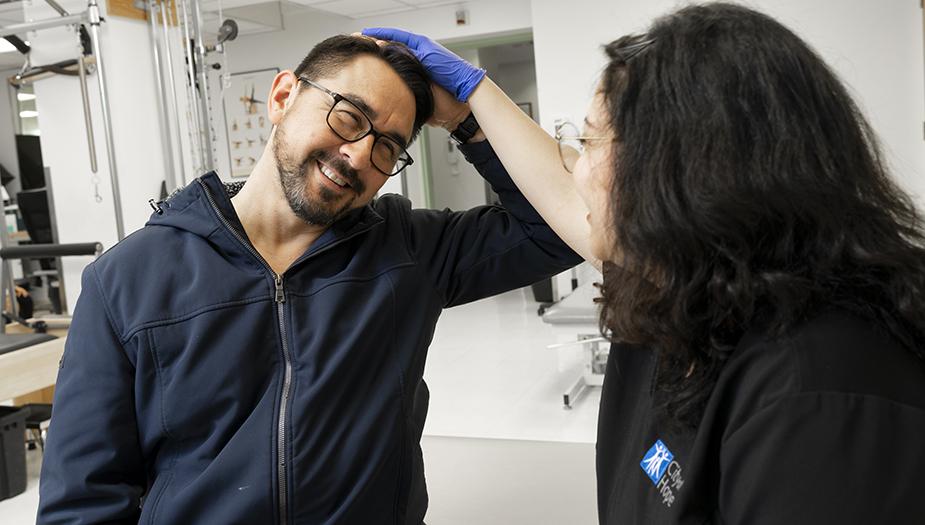
Activities coordinators enrich the inpatient experience through distraction, crafts, games and socialization. The activities team provides opportunities to boost morale with the goal of positively engaging with an otherwise difficult experience.
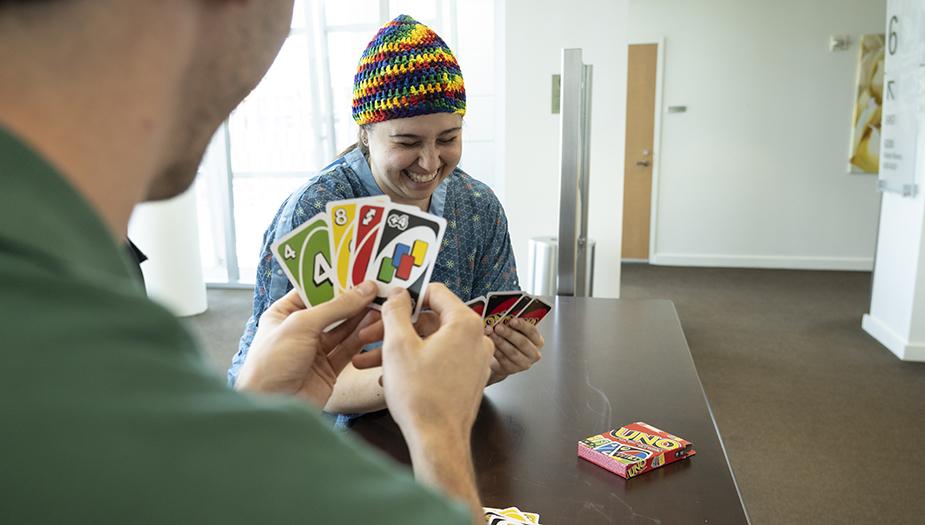
Prehabilitation
The goal of prehabilitation, or prehab, is to help you become physically and emotionally stronger before treatment or surgery. Cancer surgery can cause many side effects, including pain, fatigue and difficulty performing daily tasks. Based on your needs, prehab therapies may include strength and endurance exercises or stress-reduction techniques. After your surgery, schedule a follow-up visit to ensure optimal recovery and quality of life.
Contact Us
Fax: 626-930-5369
Hours: Monday through Friday, 7 a.m. to 5 p.m.
Location: Main Medical building, Room 1026
Have you tried Hope Virtual?
Hope Virtual is a telehealth platform you can access through MyCityofHope for qualifying medical visits.
Instead of driving to receive care, connect with your City of Hope health care team through video on your smartphone, tablet or computer from home or wherever is most convenient. Learn more



